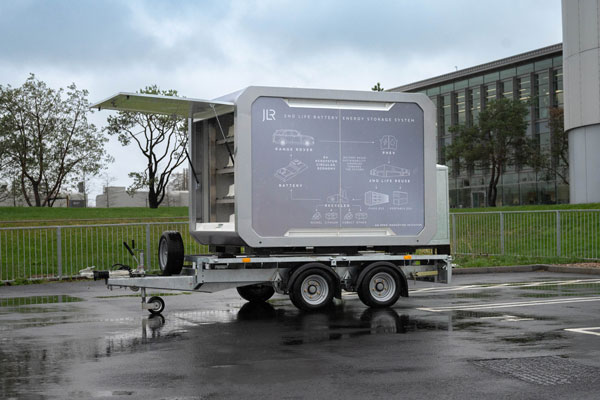
Jaguar Land Rover (JLR) has partnered with an energy storage start-up, Allye Energy, to create a Battery Energy Storage System (BESS) to provide a mobile zero-emissions power system.
Called the MAX BESS, the unit holds seven second-life Range Rover and Range Rover Sport PHEV battery packs that are removed from the vehicles and slotted into customised racks without additional processing. Each BESS can store 270kWh of
energy at full capacity.
The BESS, which is the first to use JLR’s second-life Range Rover batteries, can charge up to nine Range Rover PHEVs at any one time, and is itself designed to be easily charged by plugging it into any CCS-capable Vehicle Charger using the same input as JLR’s existing PHEV and BEV products. Other connectivity options enable it to be connected to renewable power at fixed or off-grid sites.
JLT says the BESS weighs less than 3.5 tonnes, allowing it to be fully portable to provide energy storage for retailers or JLR sites. The unit will also be commercially available for use outside of JLR.
As part of its Reimagine strategy, JLR is investing £15 billion ($AU28.5 billion) into electrification include considering the full lifecycle of EV batteries.
The company says battery value chains are predicted to grow 30 percent annually from 2022 to 2030, to reach a value of more than $400 billion ($AU622 billion).
Second-life battery supply for stationary applications is predicted to exceed
200 gigawatt-hours per year by 2030, creating a global value over $30 billion ($AU47 billion).
JLR says its batteries can be safely deployed in low-energy situations once their health falls below electric vehicle requirements, which typically leaves a 70-80 per cent residual capacity. Following these second-life use cases, JLR says it will recycle the batteries so that raw materials can be recovered for re-use.
Source: Motor Trader e-Magazine (May 2024)
29 May 2024
